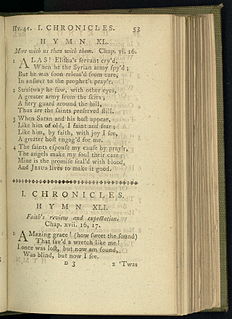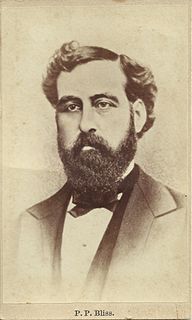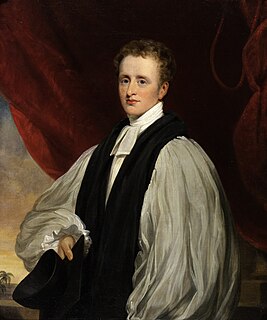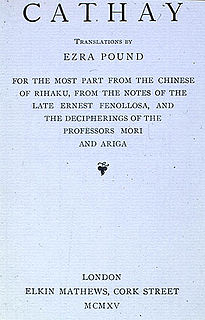
"Amazing Grace" is a Christian hymn published in 1779, with words written in 1772 by the English poet and Anglican clergyman John Newton (1725–1807).

A hymn is a type of song, usually religious, specifically written for the purpose of adoration or prayer, and typically addressed to a deity or deities, or to a prominent figure or personification. The word hymn derives from Greek ὕμνος (hymnos), which means "a song of praise". A writer of hymns is known as a hymnist. The singing or composition of hymns is called hymnody. Collections of hymns are known as hymnals or hymn books. Hymns may or may not include instrumental accompaniment.
Gospel music is a genre of Christian music. The creation, performance, significance, and even the definition of gospel music varies according to culture and social context. Gospel music is composed and performed for many purposes, including aesthetic pleasure, religious or ceremonial purposes, and as an entertainment product for the marketplace. Gospel music usually has dominant vocals with Christian lyrics. Gospel music can be traced to the early 17th century, with roots in the black oral tradition. Hymns and sacred songs were often repeated in a call and response fashion. Most of the churches relied on hand clapping and foot stomping as rhythmic accompaniment. Most of the singing was done a cappella. The first published use of the term "gospel song" probably appeared in 1874. The original gospel songs were written and composed by authors such as George F. Root, Philip Bliss, Charles H. Gabriel, William Howard Doane, and Fanny Crosby. Gospel music publishing houses emerged. The advent of radio in the 1920s greatly increased the audience for gospel music. Following World War II, gospel music moved into major auditoriums, and gospel music concerts became quite elaborate.

Ira David Sankey, was an American gospel singer and composer, known for his long association with Dwight L. Moody in a series of religious revival campaigns in America and Britain during the closing decades of the 19th century. Sankey was a pioneer in the introduction of a musical style that influenced church services and evangelical campaigns for generations, and the hymns that he wrote or popularized continued to be sung well into the 21st century.

Frances Jane van Alstyne, more commonly known as Fanny Crosby, was an American mission worker, poet, lyricist, and composer. She was one of the most prolific hymnists in history, writing more than 8,000 hymns and gospel songs, with more than 100 million copies printed, despite being blind from shortly after birth. She is also known for her teaching and her rescue mission work. By the end of the 19th century, she was a household name.

"Hark! The Herald Angels Sing" is a Christmas carol that first appeared in 1739 in the collection Hymns and Sacred Poems. As it is known in the modern era, it features lyrical contributions from Charles Wesley and George Whitefield, two of the founding ministers of Methodism, with music adapted from "Vaterland, in deinen Gauen" by Felix Mendelssohn.

Philip Paul Bliss was an American composer, conductor, writer of hymns and a bass-baritone Gospel singer. He wrote many well-known hymns, including "Almost Persuaded" (1871); "Hallelujah, What a Saviour!" (1875); "Let the Lower Lights Be Burning"; "Wonderful Words of Life" (1875); and the tune for Horatio Spafford's "It Is Well with My Soul" (1876).

Robert Lowry was an American preacher who became a popular writer of gospel music in the mid- to late-19th century. His best-known hymns include "Shall We Gather at the River", "Christ Arose!" and "Nothing But The Blood Of Jesus"'
Latter-day Saint hymns come from many sources and there have been numerous hymn books printed within the Latter Day Saint movement since its inception in 1830. The singing of hymns has always been an important part of the history and worship in the Latter Day Saint movement, including its largest component, The Church of Jesus Christ of Latter-day Saints. This article specifically addresses hymns of the LDS Church.

"Holy, Holy, Holy! Lord God Almighty!" is a Christian hymn written by the Anglican bishop Reginald Heber (1783–1826). Its lyrics speak specifically of the Holy Trinity, having been written for use on Trinity Sunday. The opening line references Isaiah 6:3, Revelation 4:8 and mirrors the opening line of the Sanctus as found in the Book of Common Prayer. The tune for this hymn, Nicaea, was composed by John Bacchus Dykes for the first edition of Hymns Ancient and Modern in 1861. The tune name is a tribute to the First Council of Nicaea which formalized the doctrine of the Trinity in 325.

"The Sweet By-and-By" is a Christian hymn with lyrics by S. Fillmore Bennett and music by Joseph P. Webster. It is recognizable by its chorus:
"Gwahoddiad" is a Welsh hymn of American origin.

Edwin Othello Excell, commonly known as E. O. Excell, was a prominent American publisher, composer, song leader, and singer of music for church, Sunday school, and evangelistic meetings during the late nineteenth and early twentieth centuries. Some of the significant collaborators in his vocal and publishing work included Sam P. Jones, William E. Biederwolf, Gipsy Smith, Charles Reign Scoville, J. Wilbur Chapman, W. E. M. Hackleman, Charles H. Gabriel and D. B. Towner.

George Coles Stebbins (1846–1945) was a gospel song writer. Stebbins was born February 26, 1846, in Orleans County, New York, where he spent the first 23 years of his life on a farm. In 1869 he moved to Chicago, Illinois, which marked the beginning of his musical career.
Anna (Annie) Louisa Walker was an English and Canadian teacher and author. She was the author of five novels and two collections of poetry, and edited an autobiography. Her poem "The Night Cometh" provides the text of the popular hymn "Work, for the night is coming".
When the Roll Is Called Up Yonder is an 1893 hymn with words and music by James Milton Black. The song was inspired by the idea of The Book of Life mentioned in the Bible, and by the absence of a child in Black's Sunday school class when the attendance was taken. The idea of someone's being not in attendance in heaven haunted Black, and after visiting the child's home and calling on a doctor to attend her for pneumonia, he went home and wrote the song after not finding one on a similar topic in his hymn collection. The song's lyrics were first published in a collection titled Songs of the Soul and the song has since been translated into at least 14 languages and sung all over the world in a variety of Christian denominations. There are more than 500 versions available on such sites as Amazon, recorded by various artists such as Loretta Lynn, Johnny Cash, Jim Nabors, and Willie Nelson, to the traditional tune. The lyrics have also been set to new music by contemporary gospel artists such as Doris Johnson. In 1945, British Prime Minister Winston Churchill created a stir in the British press when he quoted the hymn in response to a question about when the Big Three were going to meet; stated the Winnipeg Free Press: "Mr. Churchill, in one of his somewhat puckish moods, replied that he did not know, but, he added irreverently, 'When the roll is called up yonder, I'll be there.'" The British press expressed surprise at Churchill, an Anglican, being familiar with a hymn more associated with Methodism, Presbyterianism, and other "chapel" denominations or the revival meetings of Dwight L. Moody and Ira D. Sankey or R. A. Torrey and Charles McCallon Alexander, whereas the Free Press speculated that Churchill might well have heard the "catchy" tune in the street meetings held by the Salvation Army. He might also have remembered the lyrics from the 1941 movie Sergeant York.

Cathay (1915) is a collection of classical Chinese poetry translated into English by modernist poet Ezra Pound based on Ernest Fenollosa's notes that came into Pound's possession in 1913. At first Pound used the notes to translate Noh plays and then to translate Chinese poetry to English, despite a complete lack of knowledge of the Chinese language. The volume's 15 poems are seen less as strict translations and more as new pieces in their own right; and, in his bold translations of works from a language he was unfamiliar with, Pound set the stage for a modernist translations.

Hubert Platt Main MA D.D. was a hymn writer and publisher.

Francis Harold Rowley was American Baptist minister, animal welfare campaigner and hymn writer.













